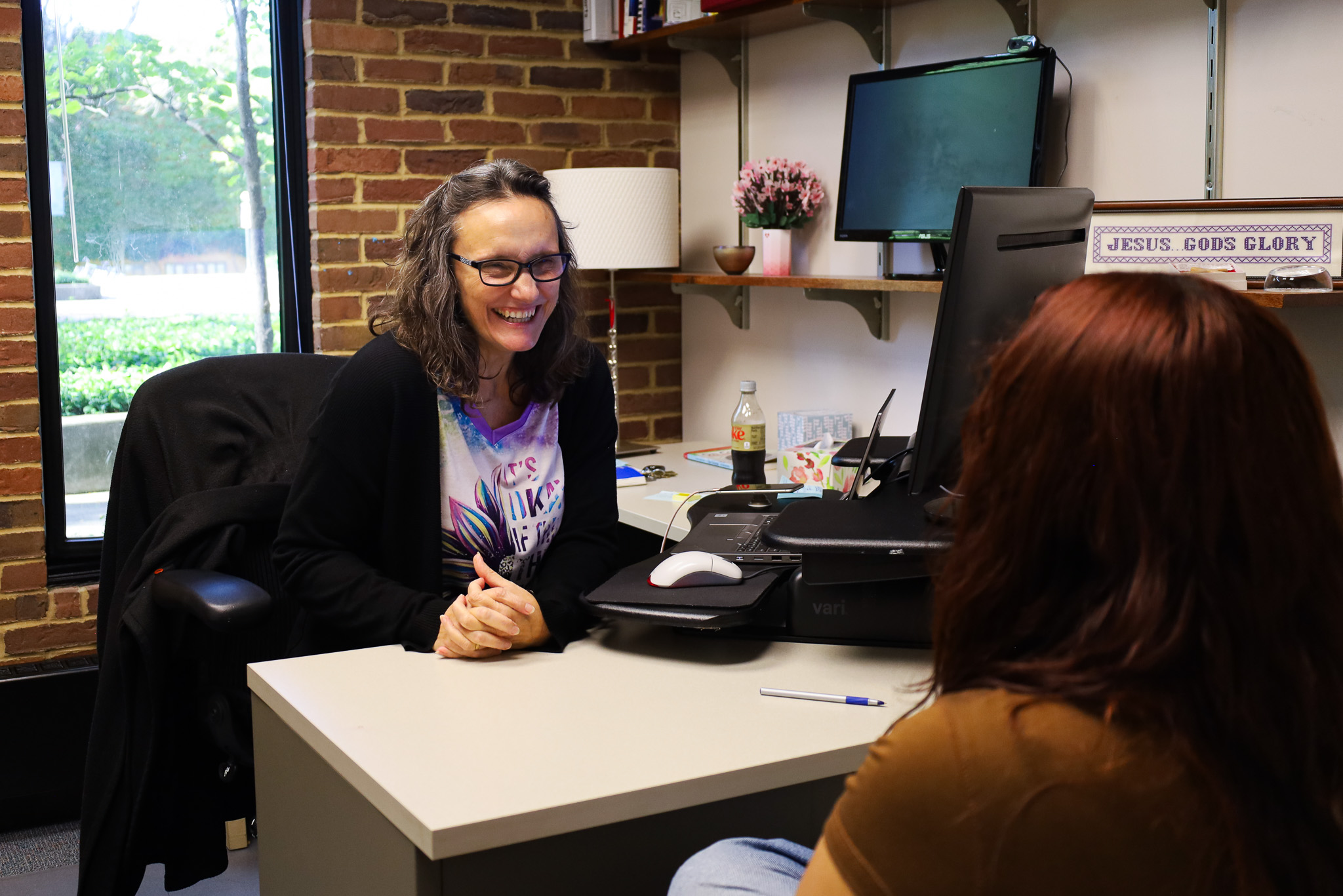Last year, The Record reported on a social group for Goshen College students with autism spectrum disorder. The group is run by Brooke Lemmon, professor of education and director of special education at GC, and consisted of six students.
In the past nine months, the group has more than doubled in size; on any given meeting day, up to 16 students will show up.Lemmon said that a few key aspects have changed; the group is now meeting twice a month instead of weekly, and for the first time since its inception, it meets in the evenings.
“We always met at 10 a.m. on Fridays,” Lemmon said of the change, “but a lot of people couldn’t make that time, so they would just never come … so we moved it to the evenings.” She described the new setup as students simply meeting over dinner and talking; it provides a space where students can “be themselves and … just hang out.”
The group itself is student-led, and Lemmon says that she often simply listens to students’ needs. Lemmon said that because the process of getting an official diagnosis can be incredibly time-consuming and expensive, a diagnosis is not a requirement to join, but people that attend the group should “seriously think” they are autistic.
“You don’t want to breach that trust,” she said.
The group is just one part of a five-pronged approach to supporting autistic students on campus; other aspects include having campus counseling, a disability support service, faculty training and peer mentoring.
Nine months ago, training and peer mentoring were not yet instituted at GC. Since then, Lemmon completed her doctorate, which was focused on faculty training for ableism (discrimination in favor of people without disabilities). She had already led a training workshop for GC staff reducing ableism and will be leading another one in the spring.
As far as peer mentoring goes, Lemmon said that the plan was “still in the works.” She worked with a student to develop a viable model for how it could work, but as of this point, the program hasn’t been instituted.
One area that Lemmon pointed to as a beneficial support service is the work that Michelle Blank is doing. Blank, director of the Academic Success Center, has taken over the role from the now-retired Judy Weaver, working in the Academic Success Center in GC’s library. Blank said that her goal is to provide “equitable access to education” to all students, which includes granting accommodations to students that require them and communicating those with professors.
Additionally, Blank said that she has “seen an awareness and acceptance of students from many different experiences, including those with [autism]” in her time on campus. Lemmon added to this, saying that in her experience, autistic students generally felt supported by their faculty advisers and felt that they could be trusted.
The social group is just one area where students feel supported, and it’s becoming even stronger.
“The cool thing about the group now is that we have freshmen and we have seniors,” Lemmon said — a sign that the project is sustainable long-term.



